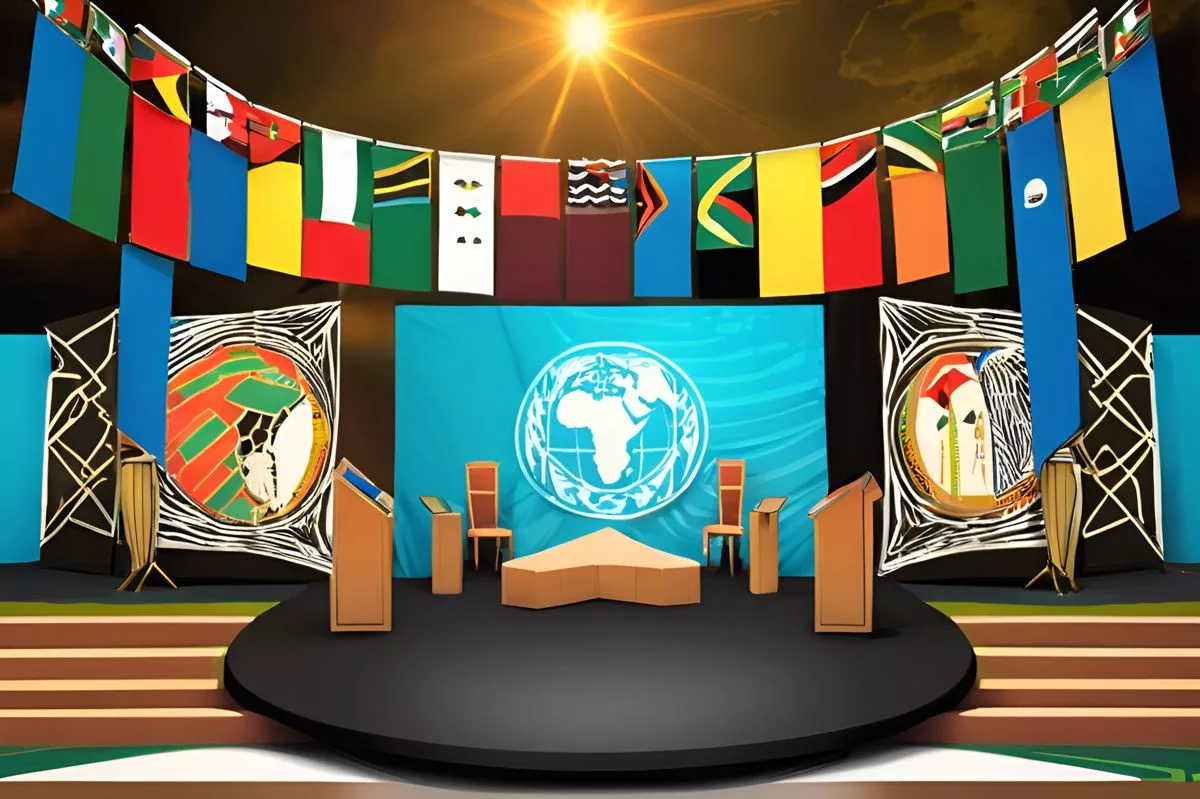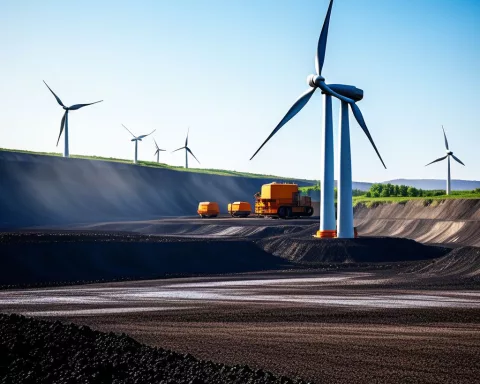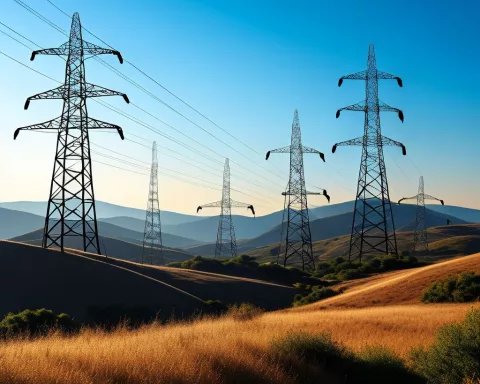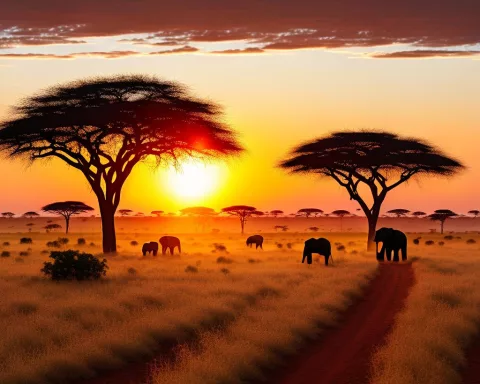The AOW Conference painted a bright picture of Africa’s energy future, showcasing its huge potential through talks about safety, sustainability, and investment. Key ideas included the need for a mix of energy sources and new laws to boost growth. Minister Gwede Mantashe stressed that energy can drive progress, calling for teamwork to overcome challenges and seize opportunities. With exciting new discoveries and smart plans in the works, Africa is ready to power up and create a better future for everyone.
What are the key insights from the AOW Conference on Africa’s energy future?
The AOW Conference highlighted Africa’s energy potential through strategic discussions on energy security, sustainability, and investment opportunities. Key points included the importance of a diversified energy mix, transformative legislation like the Upstream Petroleum Resources Development Bill, and the need for collaboration to drive economic growth and sustainable development.
Setting the Stage for African Energy Dialogue
The 30th edition of the AOW: Investing in African Energy Conference served as a dynamic platform, bringing together key players from across the globe to address Africa’s energy landscape. Minister Gwede Mantashe’s address during the event underscored the vital importance of a strategic approach to energy, highlighting both challenges and opportunities for the continent. By emphasizing the need to balance economic growth with energy security and sustainability, Minister Mantashe’s speech resonated with the pressing energy concerns across Africa.
The conference, moderated by Ms. Lebo Lion, showcased a diverse array of perspectives on energy transformation. Dignitaries, industry leaders, and stakeholders from various regions convened to engage in meaningful dialogue about the future of energy in Africa. The event’s broad participation highlighted its significance as a unified forum where different energy narratives intersect, fostering collaboration and innovation.
At the heart of Minister Mantashe’s address was the impact of geopolitical tensions on global energy markets. Despite these challenges, he noted signs of stabilization, such as the continued decrease in basic fuel prices. This positive trend provides some relief for consumers facing financial strains. Mantashe highlighted government efforts to make life more affordable for South Africans through initiatives like reducing fuel and electricity prices. These measures align with broader goals of fostering inclusive economic growth and reducing poverty.
Energy as a Catalyst for Progress
Minister Mantashe articulated a vision of energy as a “flywheel” for South Africa’s development, emphasizing the necessity of a diversified energy mix. This approach aims to meet the country’s growing energy demands while encouraging a coordinated dialogue across all energy sectors. By rebranding the AOW conference to incorporate a broader spectrum of energy discussions, the event reflects a holistic view of Africa’s energy future.
As the consumption of crude oil surpassed 100 million barrels per day in 2023, the petroleum sector faces the challenge of integrating with renewable energies. The South African government’s decision to restructure the Department of Mineral Resources and Energy demonstrates its commitment to optimizing the petroleum sector’s value chain. This reorganization seeks to ensure equitable access and promote inclusion for historically marginalized individuals.
A pivotal development in this arena is the Upstream Petroleum Resources Development Bill, recently adopted by Parliament and awaiting Presidential approval. This legislative framework holds the promise of invigorating South Africa’s petroleum industry, drawing comparisons to Namibia’s recent economic growth driven by oil discoveries. The establishment of the South African National Petroleum Company (SANPC) aims to ensure that national resources benefit citizens, fostering partnerships and driving economic progress.
Transformative Legislation and Exploration
Mantashe also addressed the Petroleum Products Amendment Bill, which aims to transform the petroleum sector by promoting participation and equity. By establishing regulatory oversight for those involved in manufacturing and selling liquid fuels, this bill supports national economic development. It aims to create a more inclusive and competitive environment within the petroleum industry.
Despite a global shift towards renewable energies, Africa continues to attract significant interest in its oil and gas reserves. Countries like Côte d’Ivoire, Mozambique, and Uganda have made notable strides with major oil discoveries and increased revenues from liquefied natural gas (LNG). Recent discoveries in Namibia’s Orange Basin have drawn considerable attention, with the potential to extend into South African territories, offering new opportunities for exploration.
South Africa’s exploration efforts in its under-explored deep waters have revealed promising prospects, particularly in the South Outeniqua Basin. Even though TotalEnergies chose to withdraw from this block, other players like MainStreet remain poised to capitalize on these opportunities. Further exploration projects in the Orange Basin are progressing, with promising developments expected in the coming years.
Overcoming Challenges and Seizing Opportunities
Minister Mantashe acknowledged the obstacles posed by foreign-funded lobby groups and NGOs, which have occasionally hindered exploration and production projects. Nevertheless, successful seismic data acquisition along the west coast demonstrates that petroleum resource exploration can proceed without harming the environment. This achievement highlights the potential for sustainable development in South Africa’s energy sector.
Beyond offshore exploration, South Africa is also focusing on its onshore potential. The Karoo Basin, with an estimated 209 trillion cubic feet of shale gas, holds the promise of a long-term indigenous gas supply. Developing these resources responsibly could significantly contribute to the country’s energy needs and economic growth. Initiatives to establish environmental baselines and gather geophysical data aim to ensure sustainable and responsible resource development.
To secure a steady supply of liquid fuels, the government’s acquisition of assets at the SAPREF Precinct represents a strategic move. This decision aligns with efforts to maintain sufficient petroleum product supplies, especially in light of the premature shutdown of several refineries. The acquisition underscores the importance of ensuring energy security and resilience for the nation.
A Call to Action for a Sustainable Energy Future
Minister Mantashe concluded his address with a call to action, urging delegates and the investment community to continue supporting the development of Africa’s oil and gas sector. This support is crucial for realizing a prosperous energy future for the continent, promoting sustainable development, and fostering partnerships that can drive long-term economic growth. The vision articulated at the conference underscores energy’s potential to transform Africa, embracing both opportunities and challenges in the continent’s diverse energy landscape.
In essence, the AOW conference and Minister Mantashe’s address captured the transformative potential of energy in Africa. By harnessing the continent’s diverse energy resources, stakeholders can work together to advance collective progress, ensuring a sustainable and prosperous future for all.
FAQ: Investing in Africa’s Energy Future
What were the main themes discussed at the AOW Conference regarding Africa’s energy future?
The AOW Conference focused on Africa’s energy potential through discussions on energy security, sustainability, and investment opportunities. Key themes included the importance of a diversified energy mix, transformative legislation like the Upstream Petroleum Resources Development Bill, and the need for collaboration to drive economic growth and sustainable development.
How does Minister Gwede Mantashe view the role of energy in Africa’s development?
Minister Mantashe views energy as a critical “flywheel” for development in South Africa. He emphasized the necessity of a diversified energy mix to meet growing energy demands while fostering coordinated dialogue across all energy sectors. This approach aims to balance economic growth with energy security and sustainability.
What legislative developments were highlighted at the conference?
The conference discussed significant legislative frameworks, including the Upstream Petroleum Resources Development Bill and the Petroleum Products Amendment Bill. These legislations aim to invigorate the petroleum industry, promote equity in participation, and establish regulatory oversight, which are expected to enhance national economic development in the sector.
What opportunities for exploration and investment were identified?
The conference identified considerable opportunities in Africa’s oil and gas reserves, particularly in countries like Côte d’Ivoire, Mozambique, and Uganda. New discoveries in Namibia’s Orange Basin and South Africa’s under-explored deep waters, such as the South Outeniqua Basin, have also attracted interest and potential for investment.
What challenges does the African energy sector face?
Minister Mantashe acknowledged challenges posed by foreign-funded lobby groups and NGOs that have occasionally hindered exploration and production projects. Furthermore, there are environmental concerns that need to be addressed to ensure sustainable development in the sector.
How does the South African government plan to ensure energy security and sustainable development?
The South African government is focused on strategic acquisitions, such as the SAPREF Precinct, to maintain a steady supply of liquid fuels, especially amid refinery shutdowns. Additionally, there are ongoing initiatives to responsibly develop indigenous gas resources in the Karoo Basin and establish environmental baselines to support sustainable resource management.












